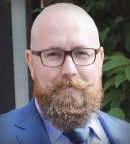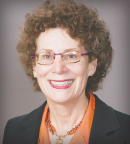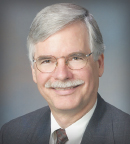At the 2022 Summit on Cancer Health Disparities in Seattle, leaders from five of the leading professional societies in cancer discussed their respective organizations’ current initiatives toward improving cancer health disparities.1 Representatives from ASCO, the American Society for Clinical Pathology (ASCP), the European Oncology Nursing Society (EONS),the American Society for Radiation Oncology (ASTRO) and the National Comprehensive Cancer Network (NCCN) spoke on efforts to improve patient outcomes—domestically as well as globally—by facilitating the equitable delivery of cancer care.
ASCO Efforts
“ASCO is perfectly equipped to address the global cancer burden,” said Everett E. Vokes, MD, FASCO, 2021–2022 President of ASCO. “We have 45,000 members in over 150 countries, and we’re incredibly focused on global efforts moving forward.”

“We need to do better and focus our innovation on ensuring equity for patients across the spectrum of diagnosis, care, and survivorship.”— Everett E. Vokes, MD, FASCO
Tweet this quote
ASCO’s global equity efforts aim to advance research, education, and quality through initiatives supporting global oncology research, training for providers in low- and middle-income countries (LMICs), and measuring and improving care in LMICs.
The health equity goals outlined in ASCO’s Cancer Disparities and Health Equity Statement2 focus on the following:
- Addressing structural barriers, including social determinants of health and unconscious bias
- Increasing awareness and action by engaging the entire ASCO membership and building community partnerships
- Ensuring equitable access to high-quality care through increasing screening for underserved populations, as well as increasing support for providers serving the underserved
- Ensuring equitable research through efforts to increase trial participation among racial/ethnic minorities, and support of the CLINICAL TREATMENT Act.
Dr. Vokes pointed out that Black and Hispanic/Latinx patients currently represent about 6% and 2% of patients in cancer clinical trials in the United States, respectively, despite making up a significantly higher proportion of the population. “And a similarly lagging distribution exists in the oncology workforce,” he noted.
ASCO maintains that all patients, no matter who they are or where they live, deserve the highest-quality cancer care. The organization aims to move closer to a world where clinical trials more accurately represent the population of patients with cancer, and trials will be routinely offered as a treatment option for all patients, he said.
Efforts to increase equity in clinical trial enrollment will involve collaboration with other organizations focused on community care; through combined efforts with the Association of Community Cancer Centers (ACCC), 75 oncology practices are now participating in the effort to increase equity in trial accrual, said Dr. Vokes. Other equity efforts include medical student rotations for underrepresented populations; young investigator awards increasingly targeted at international trainees; and research professorships in diversity, inclusion, and health disparities. More details on ASCO’s Equity, Diversity, and Inclusion Action Plan can be found at https://www.asco.org/news-initiatives/current-initiatives/health-equity.
ASCO’s resource-stratified guidelines help to ensure global quality by using input and research from around the world to deliver evidence-based recommendations for clinicians and policymakers. The Quality Oncology Practice Initiative, started in the United States, is now poised to launch in pilot projects around the world.
Finally, ASCO is addressing the availability and affordability of cancer drugs through a multipronged, multidisciplinary approach. According to Dr. Vokes, ASCO is open to partnership with a wide range of organizations in working to solve these issues.
“The goal is to make equitable, convenient, and efficient care available to patients worldwide,” he said. “We acknowledge the many accomplishments of the past 50 years but also recognize they have been unevenly distributed; we need to do better and focus our innovation on ensuring equity for patients across the spectrum of diagnosis, care, and survivorship.”
ASCP Efforts
The ASCP Center for Global Health: Partners for Cancer Diagnosis and Treatment initiative, launched in 2015, aims to provide rapid cancer diagnostics, care, and treatment to underserved areas in sub-Saharan Africa.
“Why do we do what we do for Africa?” asked Dan Milner, MD, MSc(Epi), MBA, FASCP, consultant pathologist for the ASCP Center for Global Health. “Because there aren’t a lot of pathologists in Africa. In the best situation, the data show 1 pathologist for every 200,000 patients, but most of these countries are in a much worse situation than that.”
“Through telepathology, more than 100 million people now have access to secondary consultations.”— Dan Milner, MD, MSc(Epi), MBA, FASCP
Tweet this quote
In some African countries, the data show only 1 pathologist per 1 million, 2 million, or even 5 million patients; for reference, in the United States, 1 pathologist exists for about every 20,000 patients.3 According to Dr. Milner, this initiative has already led to great strides in Rwanda alone, with an increase from 5 to 20 pathologists in about 5 years.
As part of the project, Dr. Milner and his colleagues created a projection model to determine the need for pathologists in Africa, as well as a widely applicable budgeting model to determine exactly how much revenue is needed—per sample—to run a laboratory. But the take-home message, he added, is the difference between the cost projection data for the United States and Africa comes down to salary.
In the United States, 73% of the total cost of a lab is attributed to salaries, whereas in Africa, salary accounts for only 30% of the total cost of the lab. However, the cost of reagents and supplies is the same because all immunohistochemistry required for patient care, prognostics, etc, comes from the United States or Europe, he reported.
“By the Big Mac Index or any other economic model, we should be paying one-third to one-quarter of what the United States is paying for immunohistochemistry in Africa,” he noted. “But we’re not; we’re actually paying two to three times as much, because in addition to paying the same price as the United States, we have to add the distributor cost.”
According to Dr. Milner, the lack of manufacturing of diagnostic tests and other supplies is arguably the most important issue facing the delivery of health care in Africa today.
He and his colleagues also used existing protocols from the World Health Organization (WHO) to develop a guideline for the specifics of diagnosis needed to use certain drugs. This model may help new programs in LMICs to realize that often standard histology and immunohistochemistry alone are needed to diagnose a malignancy, he said.
“This is important, because all countries that come to us for help say they need molecular testing, but 75% to 95% of all cancer diagnoses are done with basic histology and immunohistochemistry, which is very inexpensive,” he explained. “As your program advances, you need molecular tests, but you don’t need them to get started and save lives.”
According to Dr. Milner, telepathology is at the core of their program. By installing remote telepathology whole-slide imaging systems and matching them with United States–based volunteer pathologists, they have been able to provide telepathology support for 20 sites in 16 countries so far. “Through telepathology, more than 100 million people now have access to secondary consultations,” he reported.
EONS Efforts
EONS is a pan-European organization dedicated to the support and development of cancer nursing across its member countries. It consists of individual members as well as national societies across the European continent.
“The mission of EONS is to ensure that every patient affected by cancer has access to a highly educated, evidence-based-informed cancer nurse who can provide the right care at the right moment, tailored to each patient,” said Johan De Munter, President of EONS. He emphasized the importance of a collaborative approach to improving equitable cancer care, not only in terms of involving entire care teams but also patients.

“We need our patients with us, not in the middle, to know what kind of care they need. The best way to improve access to cancer care is to improve it together.”— Johan De Munter
Tweet this quote
“We need our patients with us, not in the middle, to know what kind of care they need,” he said. “The best way to improve access to cancer care is to improve it together.”
Europe accounts for only about 10% of the world’s population, but it accounts for one-quarter of the world’s cancer cases, with 2.7 million cancer diagnoses and 1.3 million cancer deaths in 2020. And, depending on the country, considerable disparities in cancer survival rates exist.
According to Mr. De Munter, these cancer health disparities are further driven by factors such as the lack of an (inter)national cancer strategy in Europe, the lack of formal recognition for cancer nurses and other provider groups, poorly implemented prevention and screening programs, and fragmented service delivery. Europe is also currently facing many of the same challenges as the United States, such as general nursing shortages, increasing demands of care, rising health costs, and increased risk of burnout.
The EONS strategy to address these issues and increase the delivery of equitable cancer care in Europe includes the following components:
- Communication through capacity building (EONS has published a Guide to Establishing a National Cancer Nursing Society)
- Advocacy (EONS Cancer Nursing Index; efforts to increase occupational safety)
- Research: The Recognizing European Cancer Nursing (RECAN) Project4 is designed to increase recognition of the value of cancer nursing across Europe. The results from phases 1 and 2 were presented at a meeting of policymakers in the European Union.
- Education (the EONS Cancer Nursing Education Framework)
- Young Cancer Nurses (recognizing the importance of younger cancer nurses to the future of cancer care).
“I’m particularly proud of the Cancer Nursing Education Framework,” Mr. De Munter said. “We’ve established European Cancer Nursing Day, and on May 18 of every year, we go into different countries with the Framework and talk to the Ministers of Healthcare and Education, so they can establish new lines of learning and new courses for cancer nurses.”
ASTRO Efforts
ASTRO is using its professional society resources, including organization and membership, education/research, advocacy, and collaboration, to address the many barriers to cancer care access in the radiation oncology community, according to Geraldine Jacobson, MD, MPH, MBA, FASTRO, President of ASTRO.
About 20% of U.S. citizens live in rural communities more than 25 miles from a radiation center. Although the number of radiation oncology centers in the United States has increased over the past 15 years, that increase has been predominantly focused in urban areas.

“One of the most obvious and direct ways to impact access to radiation treatment is through political advocacy.”— Geraldine Jacobson, MD, MPH, MBA, FASTRO
Tweet this quote
“One of the unique things about radiation oncology is the capital costs involved; setting up a facility is pretty expensive,” she said. “The low patient volume and high capital costs for rural centers make them quite vulnerable, so even small changes in reimbursement could put these centers out of business.” The evidence states that if a patient must travel more than 25 miles for radiation oncology, or medical oncology, their treatment outcomes are going to be worse, she added. We need to be mindful of the impact of reimbursement policies on access to care.
According to Dr. Jacobson, ASTRO aspires to promote an organization and specialty that represents the diversity of the patients they treat. “But if we look at the data, we have a long way to go,” she said.
In the United States, about 30% of the population identify as Black or Hispanic, but only about 7% of radiation oncologists and trainees fall into that category. In response to this challenge, ASTRO’s members approved a change in the bylaws in 2021 to create a Diversity and Inclusion Council, to promote diversity and inclusion throughout our organization and our specialty.
Education and research also play a role in addressing barriers: ASTRO’s Annual Meeting, specialty meetings, and journals provide a platform to shape research by identifying barriers to quality care, looking at the impact of race on cancer treatment and outcomes, and showcasing effective interventions. “We use our education and research platforms to hopefully change the situation in the future, by reaching out to our trainees,” she said, mentioning ASTRO’s medical student outreach, Minority Summer Fellowships, and Aspiring Scientist and Physician Program.
“One of the most obvious and direct ways to impact access to radiation treatment is through political advocacy,” she said. ASTRO’s advocacy efforts include a Health Equity Workgroup that uses national data to determine the impact of health inequities on patients seeking radiation treatment; ASTRO is also advocating for a Health Equity Achievement in Radiation Therapy (HEART) payment that would ensure wrap-around services for disadvantaged populations to complete radiation treatment.
According to Dr. Jacobson, collaboration is a crucial tool in amplifying impact: ASTRO, along with more than 100 other organizations, supports the DIVERSE Trials Act,5 which is intended to make clinical trials more efficient, inclusive, and accessible, ensuring fewer barriers to entry. ASTRO also collaborates with multiple national, regional, and international societies to improve quality and access to radiation oncology care in the United States, as well as in LMICs.
NCCN Efforts
NCCN is making big strides in addressing racial and gender disparities in cancer care, according to Robert W. Carlson, MD, Chief Executive Officer at NCCN. “NCCN is strictly mission-driven,” he said. “Our mission is to improve and facilitate quality, effective, equitable, and accessible cancer care, so all patients can live better lives.”
As a primarily guideline-oriented organization, NCCN maintains that guideline-adherent care improves outcomes for everyone and reduces or eliminates racial disparities. However, people of color are less likely to receive optimal and guideline-adherent care, even when accounting for insurance status, according to some studies, he added.

Robert W. Carlson, MD
To improve access to guideline-concordant care, NCCN has joined with the American Cancer Society Cancer Action Network and the National Minority Quality Forum to launch the Elevating Cancer Equity Initiative, which addresses racial disparities in cancer care through actionable policy and practice-change recommendations.
The Health Equity Report Card was also born of this initiative and serves as a tool for any organization (eg, providers, payers, and accreditation entities) to assess the racial and ethnic equity of care delivered at that institution. The Health Equity Report Card uses 17 specific and objective metrics to advance equitable care delivery.
“Five NCCN Member Institutions are piloting the Health Equity Report Card to see whether the information obtained is helpful to the institution and the surrounding community in assessing the equitability of care delivered,” Dr. Carlson explained.
The Elevating Cancer Equity working group also developed 16 policy-change recommendations for action by Congress, payers (including the Centers for Medicare & Medicaid Services), federal agencies, and state governments. NCCN also has an active policy program, primarily focused at the federal level, but increasingly active at state levels, he said. Proposed and recently passed policy measures to address systemic disparities include the CLINICAL TREATMENT Act,6 which requires Medicaid to cover routine costs of clinical trials; the DIVERSE Trials Act; and the Prevent HPV Cancers Act.7
“But huge disparities also exist in the care provided to the LGBTQ+ [lesbian, gay, bisexual, transgender, queer/questioning, intersexed] community,” said Dr. Carlson. These disparities include implicit bias on the part of the health-care system, misgendering, and health-care policies that don’t support chosen caregiver support. According to Dr. Carlson, NCCN recently became more focused on many of these issues.
“We publish a genetic high-risk assessment guideline and received focused criticism on the way we were addressing gender,” he said. “When we looked at that criticism, we learned it was correct; we were not being sensitive to the LGBTQ+ community. So, we acknowledged it, owned it, and responded to it.”
NCCN recognized that gender-specific language may be harmful to nonbinary and transgender patients. With help from experts at its Member Institutions, NCCN has incorporated gender-inclusive language in the NCCN Clinical Practice Guidelines in Oncology (NCCN Guidelines®); eg, “people or patients with cervical cancer,” rather than “women with cervical cancer.” According to Dr. -Carlson, these changes to the NCCN Guidelines® are more appropriate, accurate, inclusive, and respectful of these communities.
DISCLOSURE: Dr. Vokes has served as a consultant to and received honoraria from AstraZeneca, BeiGene, BioNTech, Eli Lilly, EMD Serono, Genentech, GlaxoSmithKline, and Novartis; has received research funding from AbbVie, BMS, Celgene, and Novartis; and owns stock in Coordination Pharmaceuticals. Dr. Milner, Mr. De Munter, Dr. Jacobson, and Dr. Carlson reported no conflicts of interest.
REFERENCES
1. Vokes E, Milner D, De Munter J, et al: Professional societies’ initiatives in improving cancer health disparities. 2022 Summit on Cancer Health Disparities. Presented April 30, 2022.
2. Patel MI, Lopez AM, Blackstock W, et al: Cancer disparities and health equity: A policy statement from the American Society of Clinical Oncology. J Clin Oncol 38:3439-3448, 2020.
3. Nelson AM, Milner DA, Rebbeck TR, et al: Oncologic care and pathology resources in Africa: Survey and recommendations. J Clin Oncol 34(1):20-26, 2016.
4. Campbell P, Torrens C, Kelly D, et al: Recognizing European cancer nursing: Protocol for a systematic review and meta-analysis of the evidence of effectiveness and value of cancer nursing. J Adv Nurs 73:3144-3153, 2017.
5. Cancer Action Network: ACS CAN Supports the DIVERSE Trials Act (H.R. 5030/S.2706). Available at https://www.fightcancer.org/policy-resources/acs-can-supports-diverse-trials-act-hr-5030s-2706. Accessed June 14, 2022.
6. Congress.gov: H.R.913 - CLINICAL TREATMENT Act. Available at https://www.congress.gov/bill/116th-congress/house-bill/913/titles. Accessed June 14, 2022.
7. Congress.gov: H.R.1550 - PREVENT HPV Cancers Act of 2021. Available at https://www.congress.gov/bill/117th-congress/house-bill/1550/text. Accessed June 14, 2022.

